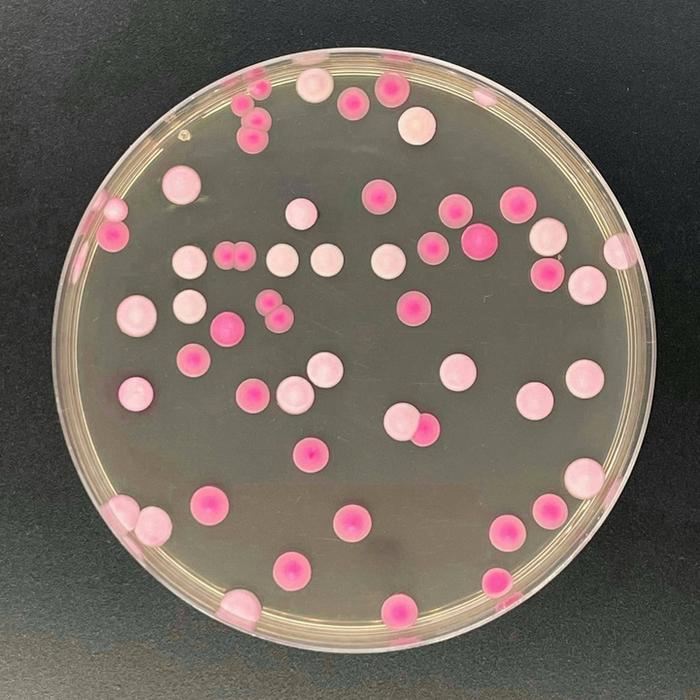Recent research published in PLOS Biology has unveiled the alarming adaptation mechanisms of the infectious yeast, Candida tropicalis, highlighting how agricultural practices may inadvertently fuel antifungal resistance. Conducted by a team led by Guanghua Huang from Fudan University, this investigation underscores the dire consequences of using antifungals such as tebuconazole (TBZ) in agriculture. The study’s findings raise significant concerns about the interplay between agriculture and human health, particularly for immunocompromised patients who are vulnerable to fungal infections.
Candida tropicalis is among the most prevalent fungi responsible for human infections. While many cases can be effectively treated, a growing number have proven life-threatening, especially for those with weakened immune systems. The ability of C. tropicalis to develop antifungal resistance poses a pressing health crisis, as the current arsenal of antifungal medications becomes less effective. The genomic adaptations that facilitate this resistance, however, have not been fully understood until now.
The researchers observed that when C. tropicalis is exposed to TBZ, there is a significant alteration in the yeast’s genomic stability. Rather than maintaining its diploid state, which was previously thought essential for survival, C. tropicalis exhibited a surprising capability: the formation of haploid cells. This phenomenon indicates a remarkable adaptability of the yeast, showcasing its ability to thrive with only one set of chromosomes. In a field traditionally dominated by the belief that diploidy was fundamental to its survival, this discovery shifts the understanding of yeast resilience.
In the study, the team applied TBZ, commonly used in agriculture to combat fungal infections in crops, to growth cultures of C. tropicalis. The results revealed a startling genomic instability within the yeast, as it lost approximately half of its DNA content. The stability of C. tropicalis’ genome seemed compromised under these conditions, leading to the emergence of haploid cells that were not only capable of surviving but also demonstrated a heightened resistance to TBZ and other antifungal agents prevalent in healthcare.
The exploration into C. tropicalis is particularly crucial given that this species has been linked to an increase in invasive fungal infections globally, raising the alarm within the medical community. Prior assumptions about the necessity of diploidy for yeast survival have been overturned, suggesting that C. tropicalis can thrive under adverse conditions by adapting its genetic structure. The implications of this flexibility are deeply concerning, especially considering the limited options available in treating resistant strains.
Further complicating the narrative, the study implies that agricultural practices are directly impacting the genetic makeup of pathogens. The potential for agricultural fungicides to induce genetic changes in fungi signals a crucial intersection of environmental practices and public health. The devastation wrought by these irresponsible agricultural applications may not only affect crops and ecosystems but also human health, suggesting an adverse cycle.
The authors posit that tebuconazole, a member of the triazole class of fungicides, is instrumental in creating these haploid cells and fostering genetic diversity within C. tropicalis. This finding prompts significant ethical and regulatory questions regarding the use of such fungicides in agriculture. As the fight against fungal infections escalates globally, the agricultural sector’s impact on resistance patterns will require urgent attention and reevaluation of practices that may inadvertently contribute to public health threats.
Compounding these concerns is the emergence of new fungal pathogens like Candida auris, notorious for its resistance to multiple antifungal treatments. The alarming similarities between the genetic adaptations seen in C. tropicalis and those implicated in C. auris raise critical questions about broader implications for fungal resistance. Researchers must consider how agricultural fungicides might facilitate either the emergence or amplification of resistant pathogens that can pose substantial risks to human health.
The relationships between agricultural practices, environmental realities, and the evolution of resistance highlights the urgency of pursuing integrated strategies for managing fungicidal use in both crops and healthcare. As the study suggests, tracking the genetic changes in fungi as they interact with environmental factors can provide insights into developing more targeted and effective antifungal therapies.
Public health strategies must evolve alongside these findings, and healthcare systems must be prepared to address the rising tide of resistant infections. This entails improved surveillance of fungal infections and the development of protocols for antifungal treatments to safeguard vulnerable populations. Binding these issues together is a need for public awareness regarding the implications of agricultural practices on human health.
With the knowledge elucidated in this research, there lies an opportunity for preventive actions within agricultural policy measures. By fostering awareness among farming communities about the potential consequences of fungicide overuse, the risk of engendering resistant fungal strains could be mitigated.
In closing, the study is a clarion call to action: as antifungal resistance looms as a growing threat, addressing the interconnectedness of agriculture and pathogen adaptability becomes paramount. The findings set a clear precedent for future research and necessitate dialogue among scientists, healthcare providers, and policymakers to craft solutions that will benefit both public health and environmental stewardship.
Subject of Research: Cells
Article Title: An agricultural triazole induces genomic instability and haploid cell formation in the human fungal pathogen Candida tropicalis
News Publication Date: April 1, 2025
Web References: PLOS Biology
References: Hu T, Zheng Q, Cao C, Li S, Huang Y, Guan Z, et al. (2025) An agricultural triazole induces genomic instability and haploid cell formation in the human fungal pathogen Candida tropicalis. PLoS Biol 23(4): e3003062.
Image Credits: Hu T, et al., 2025, PLOS Biology, CC-BY 4.0
Keywords: Candida tropicalis, antifungal resistance, tebuconazole, genomic instability, haploid cells, public health, agriculture, fungal pathogens.




